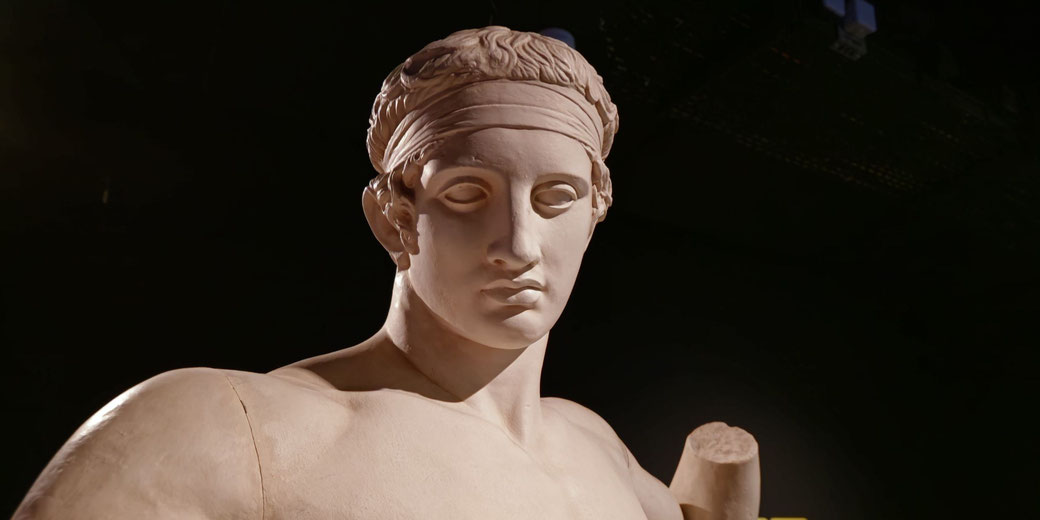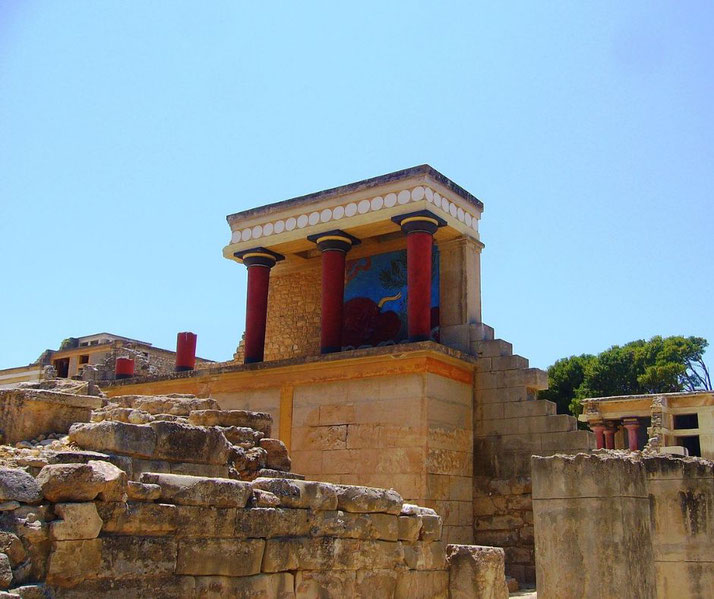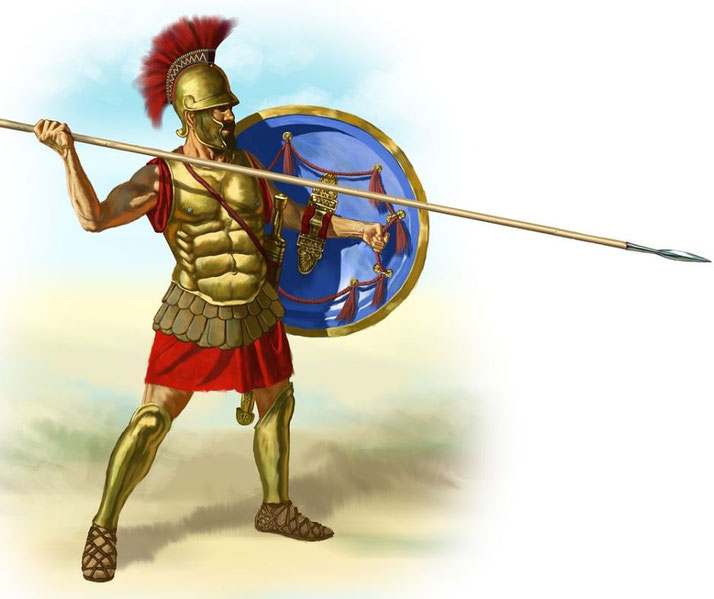An overview of Ancient Greek history

One of the most famous ancient societies was created by the Greeks. The ancient Greeks created ideas that are still alive today.
Things like democracy, philosophy, theatre, architecture, and art created over 2000 years ago came from this society.
However, there was no country called 'Greece' in the ancient world. Instead, the region we call 'Greece' was filled with individual cities who were separate from each other.
We call these cities 'city-states'. Each one had their own form of government, laws, and system of military training. Most Greeks were very loyal to their own city.
However, these separate cities were brought together by their shared language (Greek) and their similar cultural and religious practices.
The Greeks called themselves the 'Hellenes' and the land we call 'Greece' was called 'Hellas'. In ancient times, this identity spread across various regions.
While the modern country of Greece is primarily a mainland country, in ancient times the Hellenes also established city-states in areas of Turkey, North Africa, Italy and even France.
The thing that connected all of these regions was the Mediterranean Sea.
The ancient Greek culture depended on the Mediterranean Sea, which they sailed for trade, military conquest and exploration.
The Greeks travelled far and wide. They shared their ideas, culture and goods.
Early Greek cultures
Modern scholars believe that the first Greek culture didn’t begin on mainland Greece but began on the island of Crete.
The Minoan culture from Crete began around 3000 BC. Its palatial society emerged around 2000 BC and lasted until around 1450 BC.
The next Greek culture was the Mycenaeans, who lived on mainland Greece, primarily in the Peloponnesian region.
The Mycenaean culture seems to be focused on warfare, and they built their cities far away from the ocean and protected them with thick, high walls.
The famous story of the Trojan War comes from the Mycenaean period. We only know about this war because the ancient Greek poet Homer wrote it down in a work called The Iliad.
The story focuses on great deeds in warfare done by god-like heroes such as Achilles and Hector.
This culture ended suddenly around 1200 BC, and Greece entered a time called the Dark Age.
We call it a 'dark' age because very little evidence has survived to tell us what happened and as such we are 'left in the dark'.

Classical Greece
The Dark Age ended when archaeological finds in Greece appeared again around 800 BC.
After this resurgence, language, art and architecture were doing well. When these new objects appeared, they showed that language, art and architecture were doing well again by this time.
This began the period known as the 'Archaic Age' of ancient Greece, during which the set up the start of the later Classical Age.
The first Olympic Games occurred in the middle of the 8th century BC. Later, during the 5th century BC, the most famous Greek city-states, Athens and Sparta, became so powerful that they successfully defended Greece from military invasions by the Persian Empire.
The famous battles of Marathon and Thermopylae date from this time.
Following the wars with the Persians, Greece entered about a one-hundred-year period, from around 500 BC to 400 BC, known as the Classical Age or the 'Golden Age of Greece'. During this time, the Hellenes were most rich and powerful.
This is when the Hellenes were most rich and powerful. Each of the separate Greek city-states competed with each other to be the most powerful.
Eventually, the two cities mentioned before, Athens and Sparta, went to war with each other to determine who was the most powerful.
This was known as the Peloponnesian War, and almost all of Greece joined in the conflict to support one of these two cities.
Eventually, after almost 30 years, Sparta and its allies won.

Hellenistic Greek History
One hundred years after the end of the Golden Age, the final stage of ancient Greek history began.
The Hellenistic Period began with Alexander the Great, who came from Macedonia in northern Greece.
Alexander became king of Macedonia and was able to take over the rest of Greece. He then took his armies on a long campaign. He defeated the Persian Empire and then invaded India further to the east.
During his campaigns, Alexander helped spread the Greek language and culture across many new lands, which influenced many empires even after his death.
The Hellenistic Period of Greek history came to an end when the Romans conquered mainland Greece in the 2nd century BC.

What do you need help with?
Download ready-to-use digital learning resources
Copyright © History Skills 2014-2025.
Contact via email
With the exception of links to external sites, some historical sources and extracts from specific publications, all content on this website is copyrighted by History Skills. This content may not be copied, republished or redistributed without written permission from the website creator. Please use the Contact page to obtain relevant permission.





